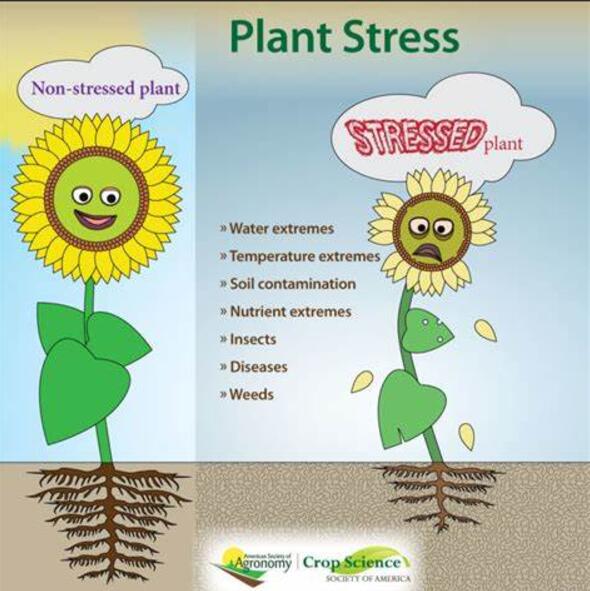揭示干旱胁迫与水稻生理的关系:机制、缓解和可持续栽培
IF 6.8
Q1 PLANT SCIENCES
引用次数: 0
摘要
面对全球气候变暖,干旱问题日益严重,已成为影响农业生产的重要因素。研究干旱胁迫对水稻生长发育和生理性状的影响,阐明水稻对干旱胁迫的潜在响应机制,探索减少干旱胁迫下产量损失的农艺措施,对提高干旱条件下水稻产量和保障全球粮食安全至关重要。本文综述了干旱胁迫下水稻生长发育、生理特性变化及抗旱调控机制的最新研究进展。深入研究了干旱胁迫下水稻的胁迫响应和能量代谢模式。系统总结了水稻抗旱评价体系的建立和抗旱品种的筛选方法。同时,概述了应对干旱胁迫的实用农艺措施和管理策略,旨在为干旱地区的水稻种植提供科学依据。本文章由计算机程序翻译,如有差异,请以英文原文为准。
Unraveling the nexus of drought stress and rice physiology: mechanisms, mitigation, and sustainable cultivation
In the face of global warming, drought is becoming an increasingly severe issue and has emerged as a crucial factor affecting agricultural production. Investigating the effects of drought stress on the growth, development, and physiological traits of rice, elucidating the underlying response mechanisms of rice to drought stress, and exploring agronomic practices to reduce yield losses under such stress are essential for boosting rice yields in arid conditions and safeguarding global food security. This review comprehensively synthesizes the latest research progress on the changes in the growth, development, and physiological characteristics of rice under drought stress, as well as the regulatory mechanisms of drought tolerance. It delves deeply into the stress responses and energy metabolism patterns of rice induced by drought stress. Moreover, it systematically summarizes the establishment of drought tolerance evaluation systems and the screening methods for drought-tolerant rice varieties. At the same time, it outlines practical agronomic measures and management strategies for combating drought stress, aiming to provide a scientific basis for rice cultivation in drought-affected regions.
求助全文
通过发布文献求助,成功后即可免费获取论文全文。
去求助
来源期刊

Plant Stress
PLANT SCIENCES-
CiteScore
5.20
自引率
8.00%
发文量
76
审稿时长
63 days
期刊介绍:
The journal Plant Stress deals with plant (or other photoautotrophs, such as algae, cyanobacteria and lichens) responses to abiotic and biotic stress factors that can result in limited growth and productivity. Such responses can be analyzed and described at a physiological, biochemical and molecular level. Experimental approaches/technologies aiming to improve growth and productivity with a potential for downstream validation under stress conditions will also be considered. Both fundamental and applied research manuscripts are welcome, provided that clear mechanistic hypotheses are made and descriptive approaches are avoided. In addition, high-quality review articles will also be considered, provided they follow a critical approach and stimulate thought for future research avenues.
Plant Stress welcomes high-quality manuscripts related (but not limited) to interactions between plants and:
Lack of water (drought) and excess (flooding),
Salinity stress,
Elevated temperature and/or low temperature (chilling and freezing),
Hypoxia and/or anoxia,
Mineral nutrient excess and/or deficiency,
Heavy metals and/or metalloids,
Plant priming (chemical, biological, physiological, nanomaterial, biostimulant) approaches for improved stress protection,
Viral, phytoplasma, bacterial and fungal plant-pathogen interactions.
The journal welcomes basic and applied research articles, as well as review articles and short communications. All submitted manuscripts will be subject to a thorough peer-reviewing process.
 求助内容:
求助内容: 应助结果提醒方式:
应助结果提醒方式:


